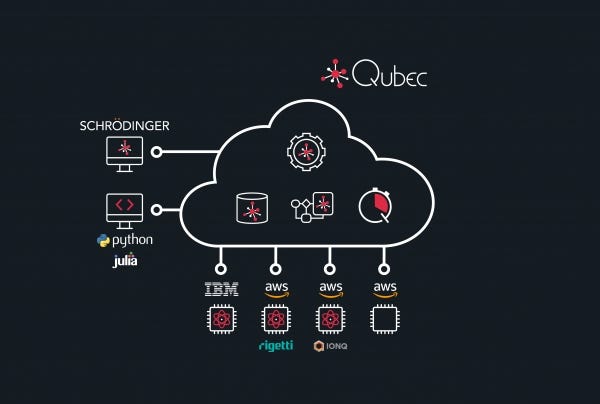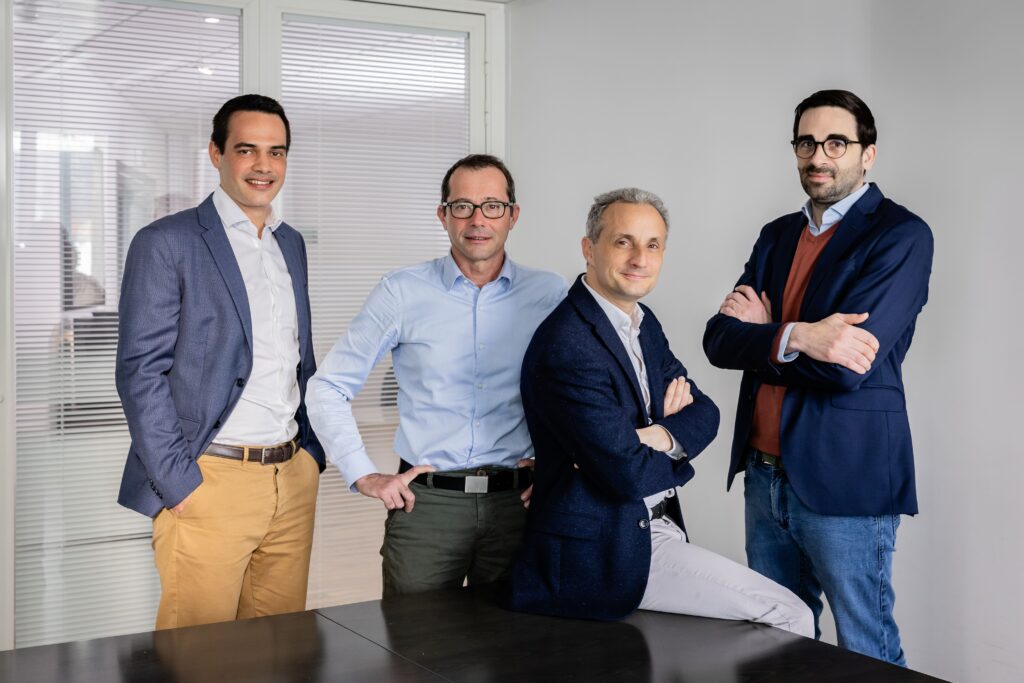
QCaaS
Since quantum as a service (QCaaS) became available for the first time in 2016 with IBM’s Quantum Experience (IBM Q Experience) — the world’s first QCaaS service designed to give the general public access to IBM’s quantum computers via the cloud — the tech giant has been joined by other players, noticeably Amazon’s Braket, Microsoft’s Azure Quantum and QC Ware for multi-provider platforms cloud services while Alibaba and Xanadu offer access to their respective quantum hardware.
It’s only a matter of time, however, before the rest of the world catches on and other big players start offering the same thing by creating their own cloud-based service or allowing customers to access their own quantum computing (QC) hardware IP, elevating QCaaS to a place higher than where it currently sits.
Companies like IBM’s and Microsoft’s QCaaS offerings have also enabled a whole ecosystem to develop where quantum software companies that have designed their own QC algorithms can grab a corner of the market.
One such example is Qu&Co. Founded in Amsterdam, the Netherlands, in 2016, the startup designs quantum-computing algorithms, software and services compatible with available quantum-hardware, offering solutions in computational chemistry, computational finance, ML, and combinatorial optimization and, ultimately, make quantum relevant for business.

Quantum computing made relevant for you
— Qu&Co
Qu&Co
The startup’s showpiece is the beta release QUBEC, the “first quantum computational platform which is specifically designed for chemistry and materials science”, available from March this year. Including the automated quantum resource estimator Q-time, a tool designed to give information on when quantum advantage can be expected for clients’ industry-relevant chemistry or materials problems, QUBEC’s quantum-workflow manager looks after customers’ “chemistry data pipelining to-and-from quantum computational co-processors from IBM, IonQ and Rigetti Computing. This service is available through the IBM Q Experience and Amazon Braket platforms, respectively.

On QUBEC, Dr. Mario Dagrada, VP of Quantum Software at Qu&Co, said: “Many of our clients want to know when they will be able to solve their industry-sized problems on some future quantum processor. To help provide such insights, QUBEC contains our automated quantum resource estimator, Q-time, that calculates the required quantum hardware specifications and estimated wall clock runtime requirements for future fault-tolerant simulations to a desired level of precision.”
Qu&Co two founders, CEO Benno Broer and CTO Vincent Elfving, are helped by advisor Oleksandr Kyriienko, lead at the University of Exeter’s Quantum Dynamics, Optics, and Simulation group (QuDOS). Kyriienko’s proprietary quantum algorithm, designed to offer a generic and efficient way to solve nonlinear differential equations, will help build large-scale ab-initio chemistry simulations for quantum computers.
“Although current day quantum processors are not yet capable of outperforming conventional computers for chemical simulations, Qu&Co is now offering a glimpse of what the future of quantum chemistry simulations will look like.”
— Vincent Elfving
This is one collaboration that suits everyone involved.
Broer, with experience as a strategy consultant and investment professional over the last two decades, has a degree in physics from Delft University of Technology (TU Delft) and an MBA from INSEAD.

With a Ph.D. in theoretical quantum optics from the University of Copenhagen, Elfving has spent the majority of his career in academia before founding Qu&Co.
Qu&Co’s novel and patented quantum algorithms are sure to be a winner, be it in the short term or further into the future.
If you found this article to be informative, you can explore more current quantum news here, exclusives, interviews, and podcasts.

















